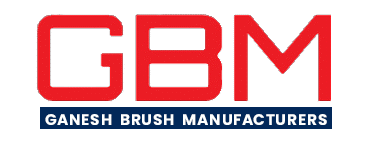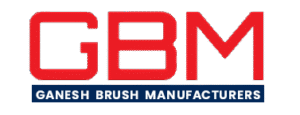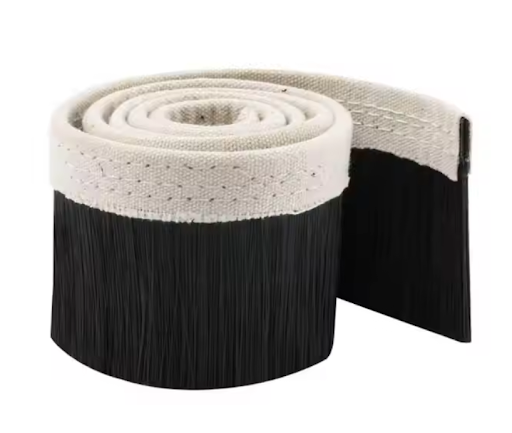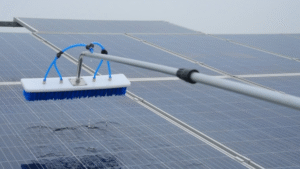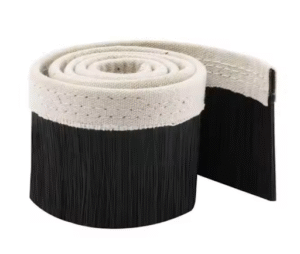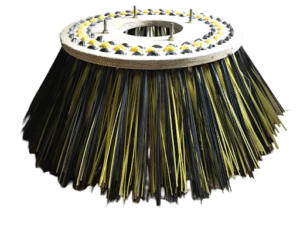Conveyors don’t usually get the glory. They’re just… there. Always running in the background, carrying boxes, food, parts, or parcels from one place to another. But let one stop for even a few minutes, and suddenly you realise how much is riding on them. Orders stall. Workers stand idle. Managers scramble. Costs pile up fast.
That’s the thing about conveyors: they only get attention when they fail.
And here’s where something surprisingly small, flexible strip brushes come into play. They don’t look like game-changers. A line of bristles in a bendable holder? Simple. But these little tools are quietly saving industries thousands by keeping downtime at bay.
Why Do Conveyors Fail So Often?
Conveyors are rugged, but they’re messy by nature. Think about it:
- Dust settles on belts.
- Crumbs, powder, or packaging scraps find their way into cracks.
- Bits of product get dragged along and build up in corners.
All of this adds stress. Belts misalign. Rollers clog. Suddenly, the system isn’t running smoothly anymore. And when a line halts, it isn’t just the conveyor that stops; production schedules fall apart.
Sure, you could clean manually. Stop the line, send in a crew, sweep it down. But pausing production every time debris builds up? Not realistic. That’s where brushes for industrial systems change the game. They clean while everything is running.
So, What Are Flexible Strip Brushes?
Imagine a long, flexible holder packed with bristles. That’s your flexible strip brush (or flexible brush strip, same thing). The “flexible” part means you can bend it, curve it, or cut it to fit unusual conveyor shapes.
And once it’s in place? It works quietly in the background. Bristles sweep dust, guide products, seal gaps, and stop little bits from jamming the works. No interruptions, no fuss.
The Big Payoff: Less Downtime
Here’s why industries love them:
- They clean as you go. No stopping the line.
- They keep debris under control. Whether it’s powder, crumbs, or packaging flakes.
- They protect the product. Essential in food and pharma, where contamination is a no-go.
- They fit anywhere. Straight lines, curves, corners—you name it.
- They save equipment. Less grit = longer belt and roller life.
In short? Flexible strip brushes keep conveyors running, and running clean.
Who’s Using Them (And Why)
These brushes aren’t tied to one sector. Their flexibility makes them useful across the board:
- Food factories – Brushing off flour dust and crumbs before they build up.
- Pharma plants – Keeping conveyors sterile and contaminant-free.
- Logistics hubs – Dealing with cardboard fibres and plastic wrap scraps.
- Automotive – Sweeping away fine metal shavings.
- Recycling plants – Tough bristles clear heavier debris.
Different industries, same outcome: smoother lines, fewer stoppages.
Flexibility = Real Advantage
Why not just use rigid brushes? Well, they have limits. They can’t bend to a curve or trim neatly into an awkward gap.
Flexible brush strips, on the other hand, can:
- Bend into U-shapes or circles.
- Trim to custom lengths on the spot.
- Install fast—so even during maintenance, downtime stays minimal.
That adaptability is a huge win in conveyor-heavy industries, where no two systems are exactly the same.
They Do More Than Clean
It’s easy to think of them as “just brushes,” but their role is broader:
- Sealing gaps – Blocking dust, air drafts, or even light leakage.
- Guiding products – Helping items stay aligned on moving belts.
- Reducing noise – Damping vibration, making machines a little quieter to work around.
So yes, they sweep. But they also seal, guide, and soften. Not bad for something so simple.
Cost Savings: The Hidden Story
Let’s be honest—brushes aren’t expensive. But downtime? That’s costly. A halted conveyor in a busy plant can mean thousands lost per hour.
By keeping belts clean, reducing manual cleaning, and extending equipment life, these brushes easily pay for themselves. They’re a textbook case of a small investment preventing a big problem.
What Makes a Good Flexible Strip Brush?
Like anything else, quality matters. A poor brush wears out fast or doesn’t fit right. A good one lasts and delivers results.
Here’s what to look for:
- Bristle choice – Nylon, polypropylene, wire, or natural fibres, depending on debris type.
- Density & stiffness – Softer for fine dust, stiffer for heavy waste.
- Base flexibility – Strong enough to hold shape, bendy enough to fit designs.
- Custom fit – Trimmed, bent, or ordered to match your conveyor.
Get this right, and the brushes will do their job for a long time.
Wrapping It Up
Conveyors keep industries moving, but they’re vulnerable. Small amounts of dirt can cause big problems. That’s why flexible strip brushes are so valuable.
They don’t stop working. They don’t complain. They just sweep, seal, and guide, quietly preventing the very problems that cause downtime. Simple, adaptable, effective.
Sometimes, the most minor parts make the most significant difference.
At Ganesh Brush Manufacturers, we’ve seen it first-hand: when conveyors stop, industries lose money fast. That’s why we make flexible strip brushes, flexible brush strips, and other brushes for industrial use that are tough, adaptable, and built for real-world conditions.
Every brush is designed to reduce downtime and extend the life of your equipment.
Check us out at Ganesh Brush Manufacturers. Let’s make sure your conveyors keep moving without interruption.
